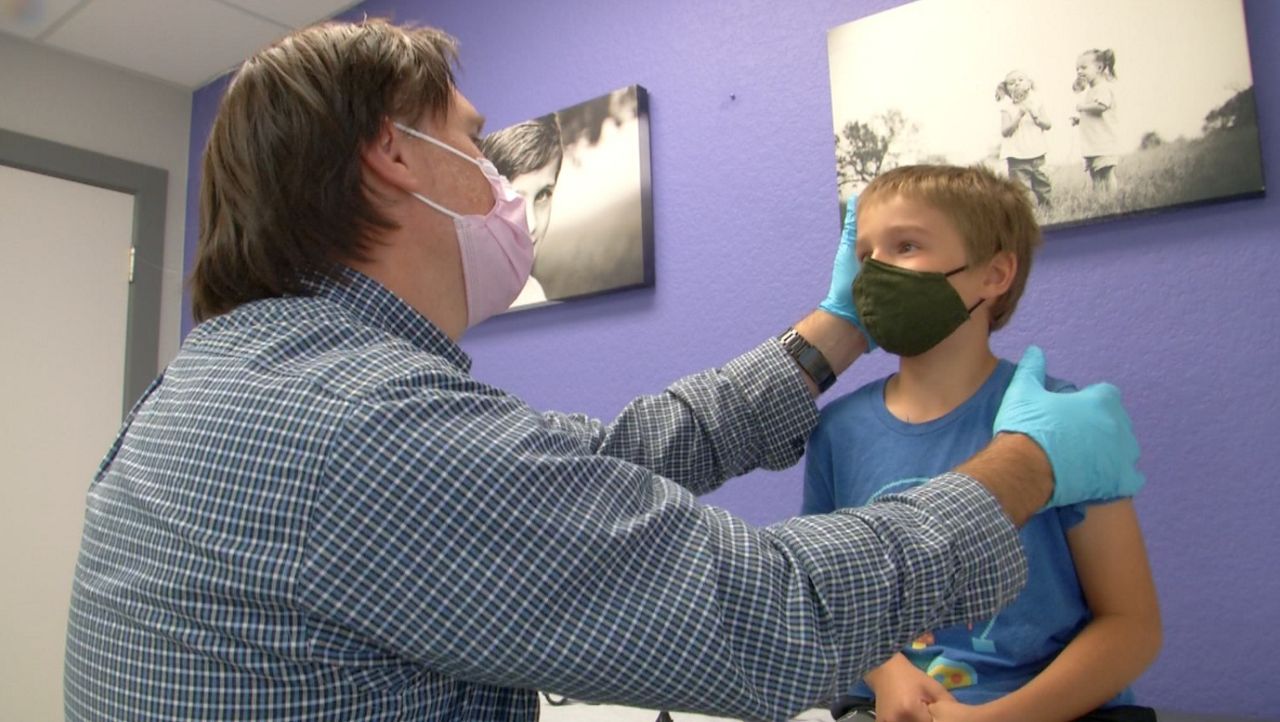CORNELIUS, N.C. — A 6-year-old is proving two rare conditions won’t stop her from pursuing her dreams.
Zoey Roland trains six hours a week. She works on strength, posture and stamina.
Her mom, who is often at her side, is the gymnastics director for the Lake Norman YMCA.
What You Need To Know
- Zoey Roland, 6, was born with omphalocele, which means the organs surrounding her belly were born outside her body
- She was later diagnosed with oculodentodigital dysplasia
- Roland's mom decided to put her into gymnastics to improve her strength and she has loved it ever since
“She is very determined and willing to try her best,” mother Amber Roland said.
This year, Zoey Roland started traveling for competitions.
It’s a place for her to have fun and do what other 6 year olds do.
But her journey to this point has been anything but normal. Zoey Roland has undergone more than a dozen surgeries. She was born with omphalocele, which means the organs surrounding her belly were born outside her body.
Later, she developed a second rare condition known as oculodentodigital dysplasia.
“Her fingers are syndactyly, which means they are fused together,” Amber Roland said. “They are like that on both hands.”
Zoey Roland had to undergo numerous procedures to separate her fingers. Her mother says there are still many uncertainties in her future, but she tries to not think about it.
“At any point in her life she could lose her vision, we just don’t know,” Amber Roland said. “She doesn’t have enamel on her teeth, so she is prone to cavities.”
Her mother was determined to give her the best life she could. The 6-year-old said she enjoys gymnastics because it makes her happy and it’s a fun sport. There are good days and tough ones. Zoey Roland faces challenges like sensory gravitation.
“When she is up high her body and brain don’t work together sometimes,” Amber Roland said.
But this doesn’t stop her. She is pursuing what she loves, and her mother hopes it inspires others as well.
“She is a fighter and she is determined,” Amber Roland said. “That is all that I want for her, to be the best version of herself that she can be.”
According to the National Organization of Rare Disorders, only 85 people have oculodentodigital dysplasia worldwide. Doctors believe it is caused by a mutation in a certain gene.










